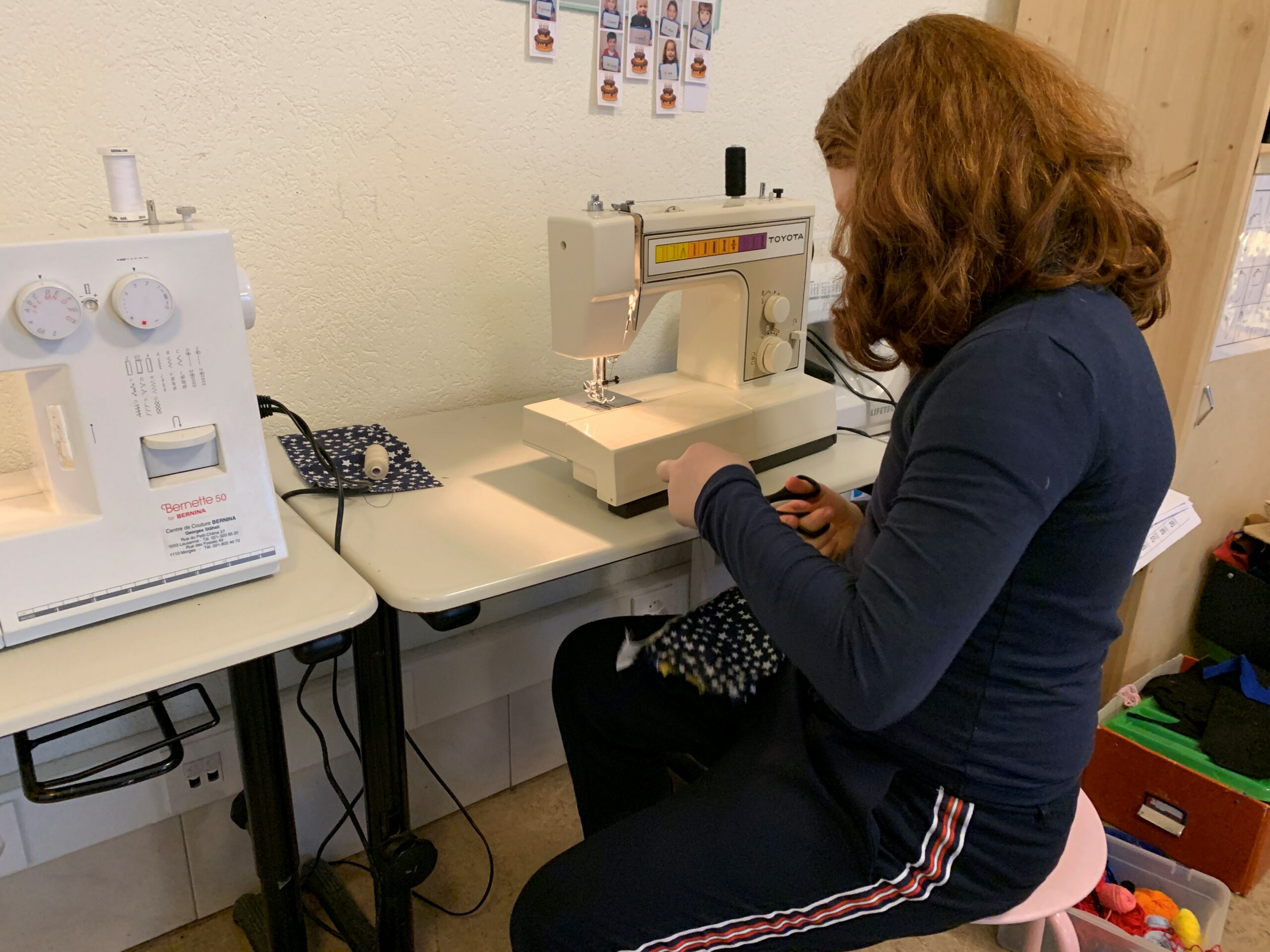Secondary
Secondary School
Secondary School at EBSR starts in 6S (as in France) (=8H) and therefore lasts four years instead of the three years of the Vaud system: this extra year allows us to go into subjects in greater depth and to broaden the curriculum.
Curious and open-minded teenagers will find everything they need in our bilingual programmes, which combine essential commitment with an openness to the world unknown elsewhere, an in-depth discovery of the sciences, a varied literature programme… In short, everything you ever wanted to know about yourself, society and the universe, you can learn here. Classes are in both languages and we adapt to the levels of our students.
Add to that time for crafts, personal projects, sport, art and camps! These are exciting and busy years at Secondary School.
We prepare all our students for the Gymnase entrance exams (OS Latin/Maths-Physics) and they can then continue on to Matu Suisse/IB/Bac. The EBSR is therefore in no way affected by the stress of the VG/VP selection in 8H at the state school. Our students are automatically assigned to the pre-gymnasium stream from 5P (7H), and it is at the gymnasium entrance exam (at the end of 9S = 11H) that students are offered a choice of different streams.
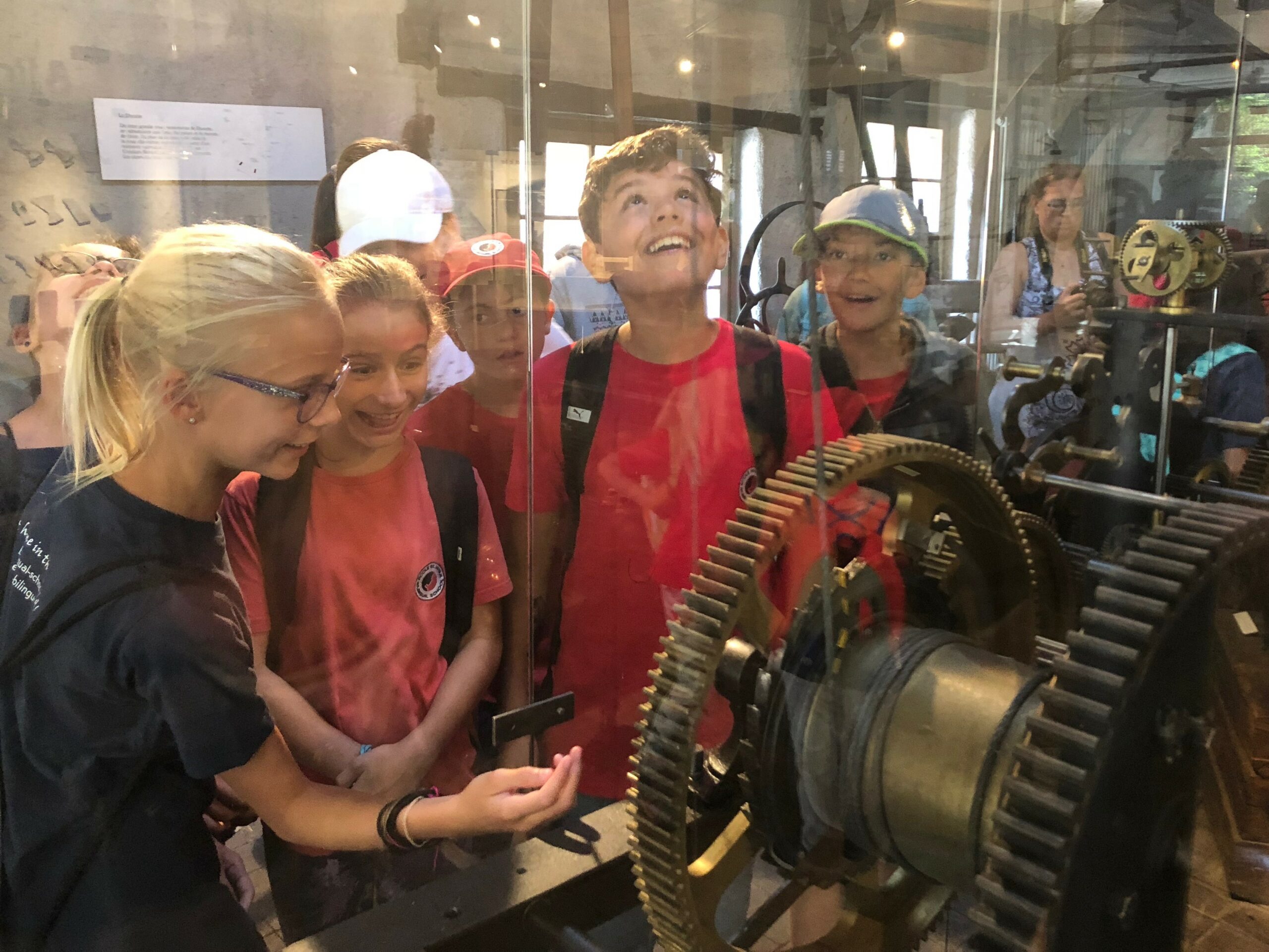
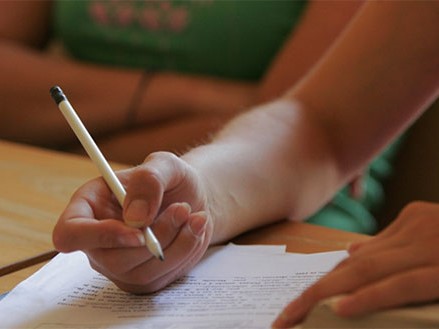
Assessments, exams and personal work
From Secondary School onwards, EBSR students are marked for their work, whether on homework or at school, by grades or on a 100% scale. The aim here is to prepare them for the reality of their subsequent studies, and to provide appropriate validation of the application and care that students personally bring to their work, whether it be questionnaires, written work, essays or presentations.
In addition, at the end of each year, the EBSR organises written and oral examinations in various subjects. These exams do not validate the year, but are simply added to the usual marks; the aim is above all to get students used to the stress of exams, time management and the need for quality revision and serious work.
In 8th Grade (=10e Harmos, 4ème FR), pupils are given the opportunity to write an essay on a topic of their choice and to defend their work. This prepares them for the Swiss Maturité Travail de Matu or the IB Extended Essay. They have two hours a week to do the necessary research and then write a well-documented and well-argued paper. They are monitored by their teachers and can ask for any help they need. The final presentation gives them the opportunity to explain and justify their project.
Gymnasium Entrance Exam and Diploma
All our students, also those intending to take the IB, Bac Français or another course, sit the Gymnase entrance exam. Whatever the outcome, we find it very formative to have the experience of preparing for and sitting exams.
The Gymnasium entrance exam currently consists of four written exams: French, English, Mathematics and German. The German exam can be avoided if the students arrived too late and have not had enough lessons; but they will then have to choose Italian ‘de novo’ at the Gymnasium, i.e. from scratch, and reach a B2 level in three years, which implies an extra hour of lessons per week and a lot of work. This should be avoided by anyone who has had enough German lessons.
Our success rate on entry to the Gymnase is 100%.
The EBSR awards its students an End of Studies Diploma which records their skills not only in the official subjects, but also in the specific subjects taught at the EBSR.
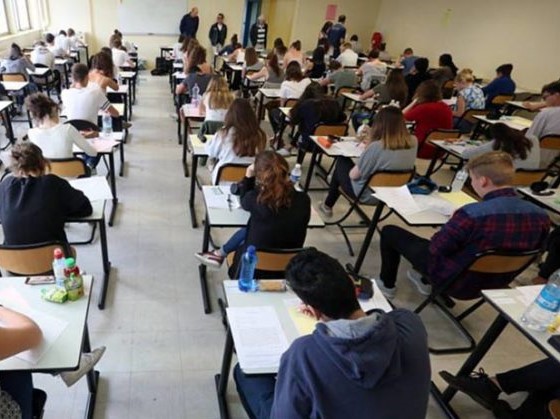
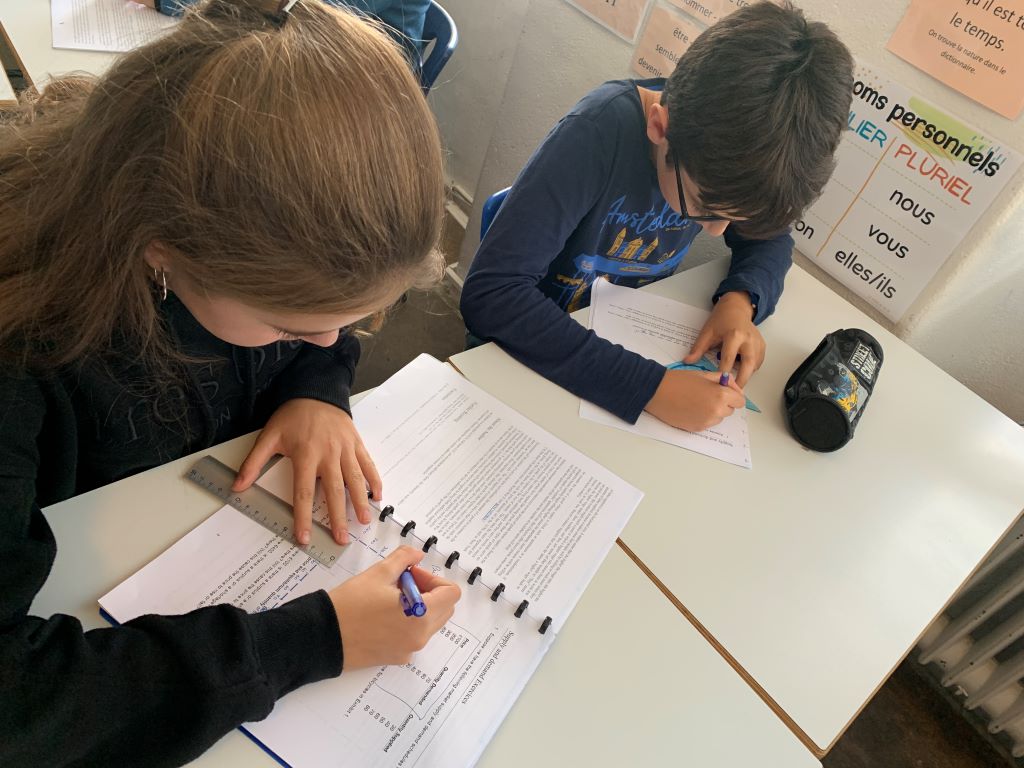
French
We have chosen tradition when it comes to knowing how to write a legible text without spelling mistakes, if possible pleasantly written and well argued. Work on grammar, spelling and conjugation continues with the pupils, with all the persistence required in each individual case. Once the students have mastered the technical aspects, they will be able to take part in short story competitions or other creative activities.
In literature, we have chosen to read a lot – one book a month – and to introduce students to the full range of classic and modern French literature, from poetry to drama, short stories and novels. It is by comparing numerous works that pupils develop their own taste and their ability to analyse them.
As a bilingual school, we are particularly committed to the study of lexicon and vocabulary. Rigour is necessary for bilinguals to avoid confusion and false friends, and to expand their vocabulary.
A specific French essay course (“dissertation”) is devoted to the study and practice of argumentation on classical philosophical and literary themes. Pupils have four years to practise this particularly challenging discipline, which is essential for further study!
English
Native English is studied to the same standard as French, in a traditional way and at a high level. Grammar and vocabulary exercises adapted to each student help to consolidate and enrich their expression.
The English and French literary syllabuses complement and often echo each other, whether in drama with Molière and Shakespeare, in romantic poetry or the modern novel. In English, too, the pupils read one work a month, with a very varied programme.
They also learn to write essays, following the Anglo-Saxon syllabus and methods, which differ substantially from French-style writing. In this way, they become not only bilingual, but also bi-cultural, and capable of pursuing an academic career in both languages.
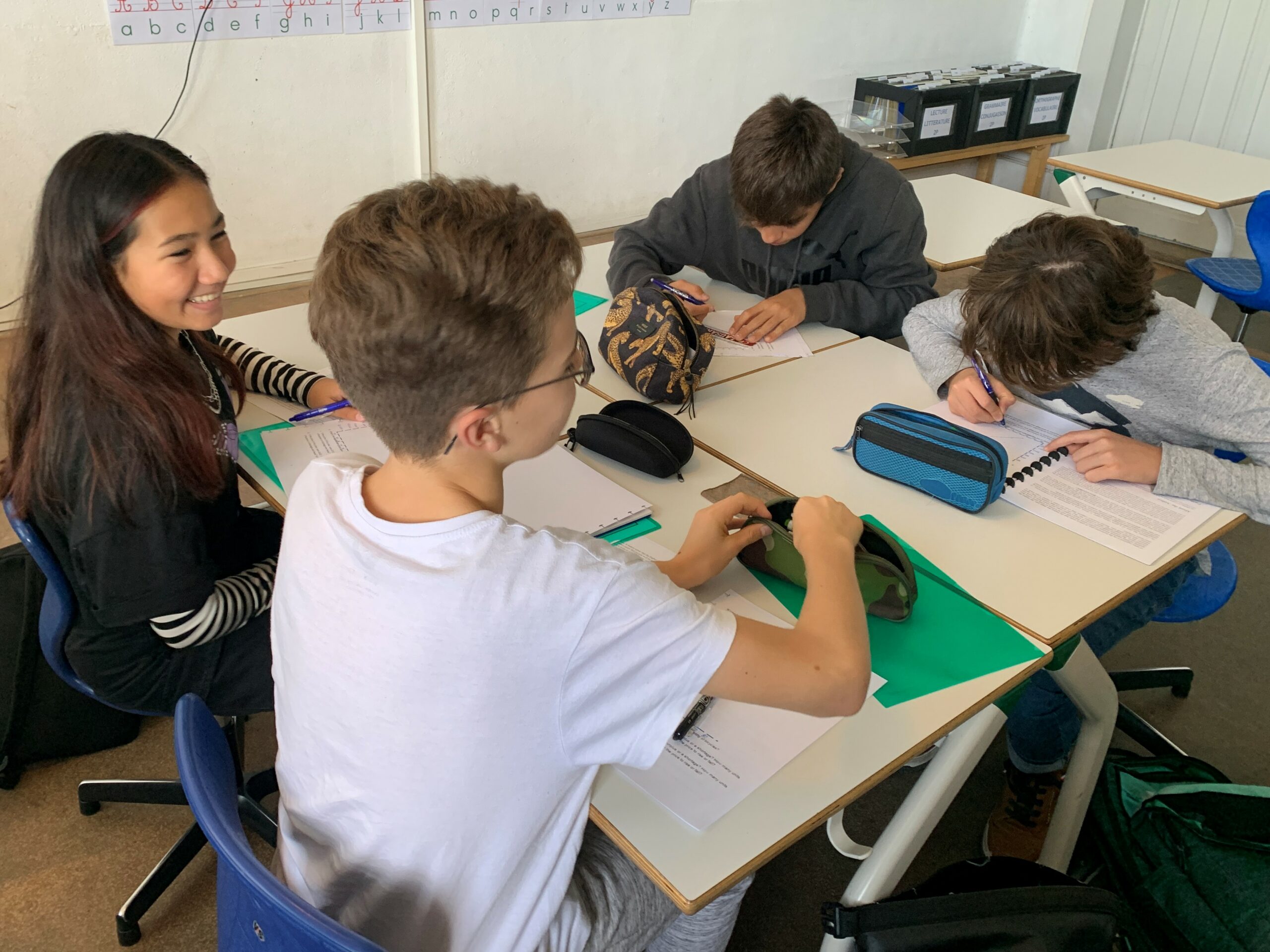
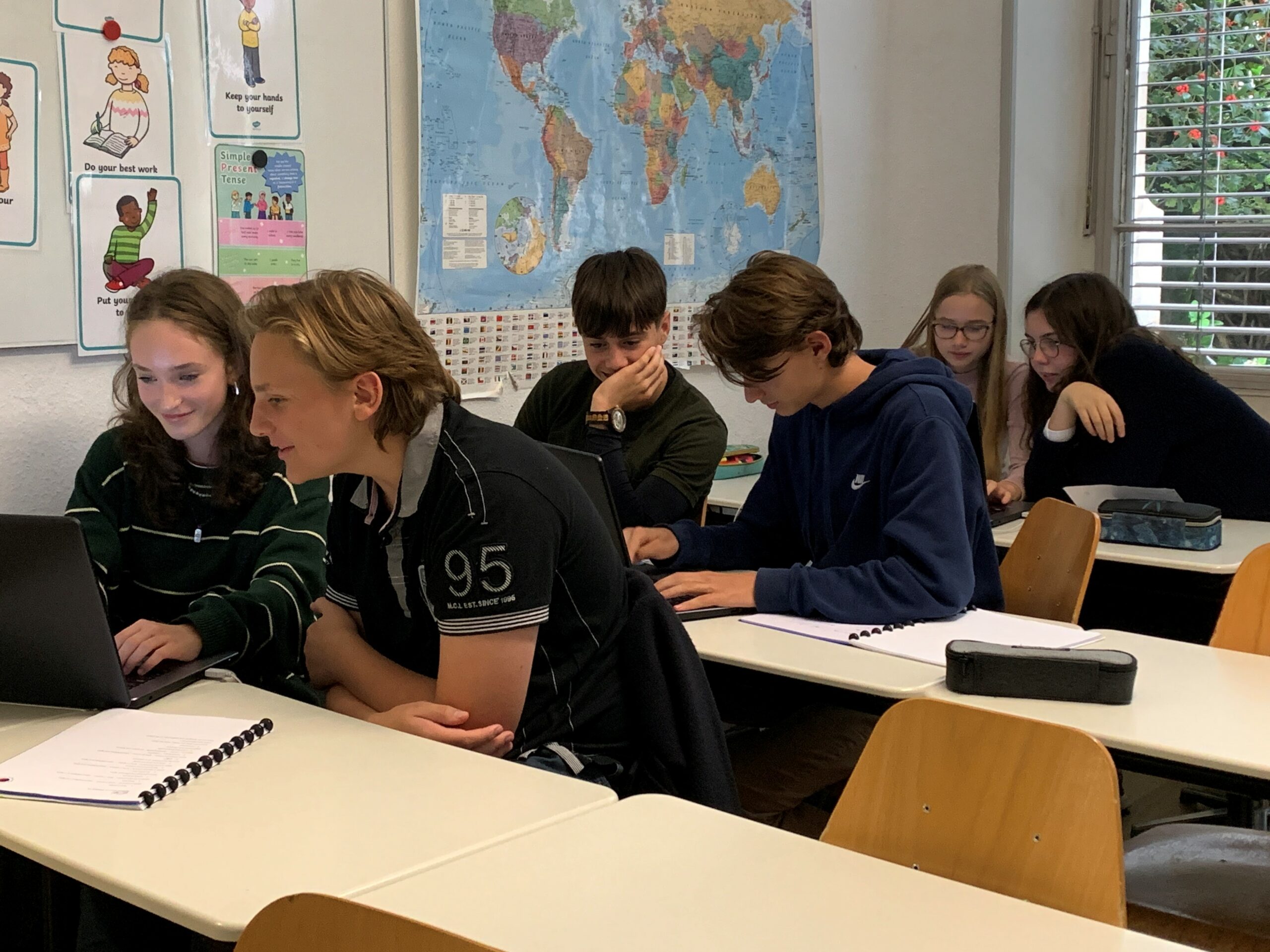
German
The best teaching methods are the work of proficient and experienced teachers. They should be sustainable and improved over time. That’s why we’ve revived the venerable Wir Sprechen Deutsch, redesigned it and put it on screen, complete with interactive resources.
Our pupils speak German in class, work on their pronunciation and learn many poems and songs by heart. They work on their vocabulary in depth, and achieve a good level of grammar thanks to numerous exercises – and also thanks to Latin.
Maths
At EBSR, there is no group teaching of maths, either at primary or secondary level. The reason for this is that it is highly ineffective for both the strongest and weakest pupils, and contributes to failures (or to holding back talent). Each pupil is therefore monitored and coached individually; their workbook is prepared for them according to their needs. Our aim is to ensure that each student completes the year’s programme successfully and goes on to the Gymnase.
Our maths programme is based on the Singapore Programme, completed with other material; it covers not only the concepts taught in Switzerland, but also in France, the UK and the USA: so pupils do trigonometry – as they do in Switzerland – and statistics – as they do in the UK.
When our students are brilliant, we prepare them for the Cours Euler exam; we regularly have students in this course organised by the EPFL and aimed at students with special talent in maths.
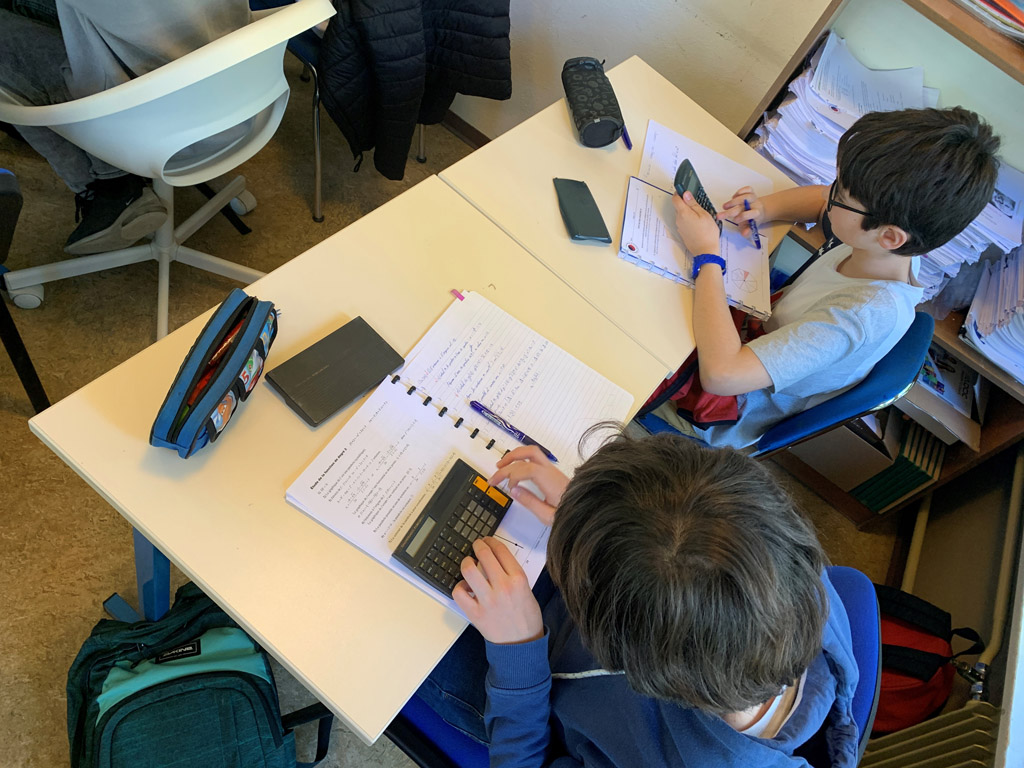
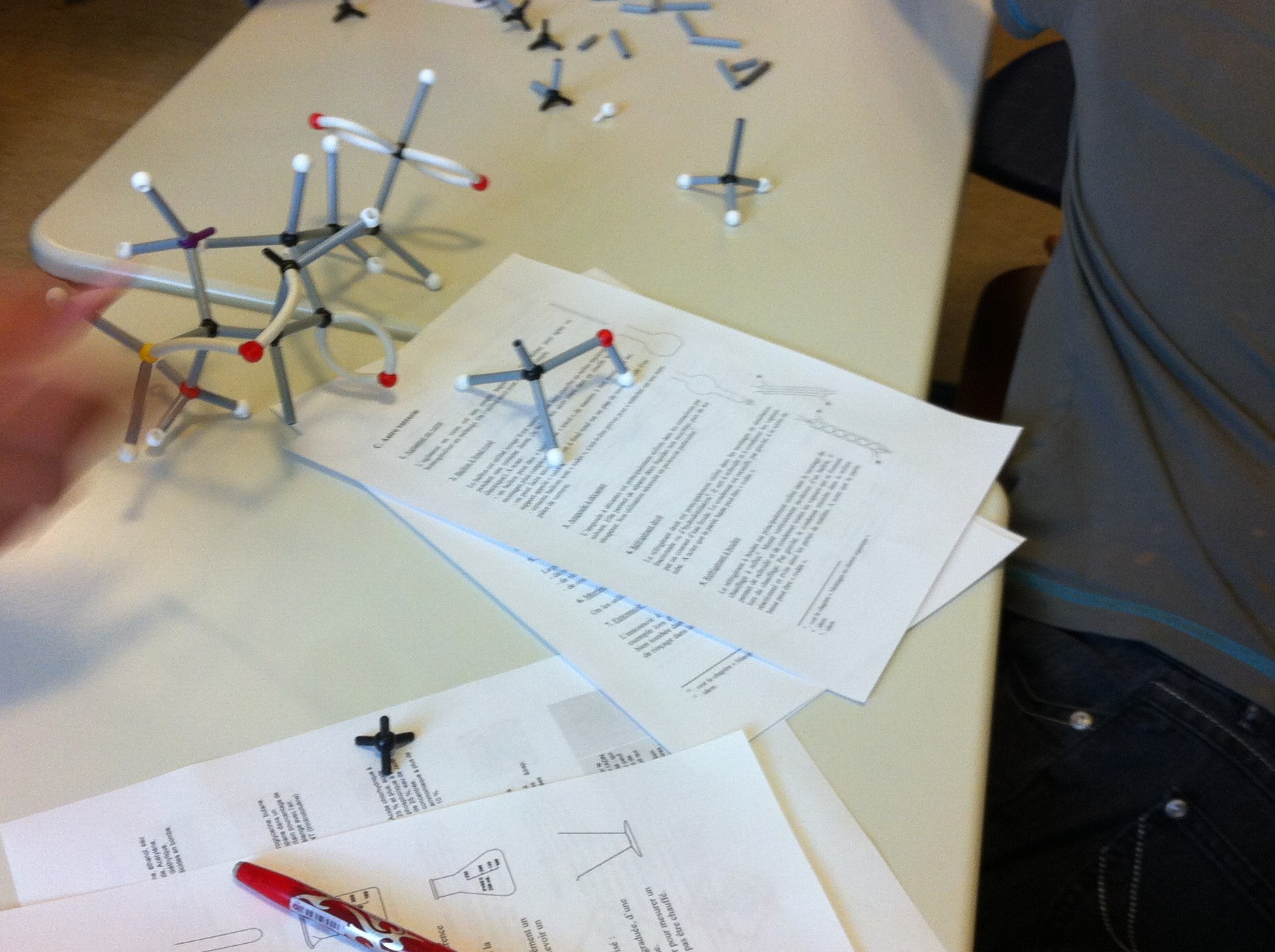
Physics
This general course covers 6th and 7th grade. After introducing scientific notation, physical quantities and their units, the programme gradually develops the fields of mechanics, optics and energy. It continues with the structure and states of matter, the laws of reflection and refraction, the concepts of mass, volume and density, the quantity of motion, Newton’s laws, the different types of motion, gravitation and Kepler’s laws, work, power, calorimetry and changes of state.
Biology
In biology, students start with the cell and study its organelles; they then move on to organ systems and study cell division, respiration and photosynthesis. Plant biology is the next topic, with classification, anatomy and reproduction; many experiments are carried out. Human biology follows, with the study of all the major systems (nervous, immune, circulatory, etc.); finally, the study of genetics, bacteria and viruses concludes the programme.
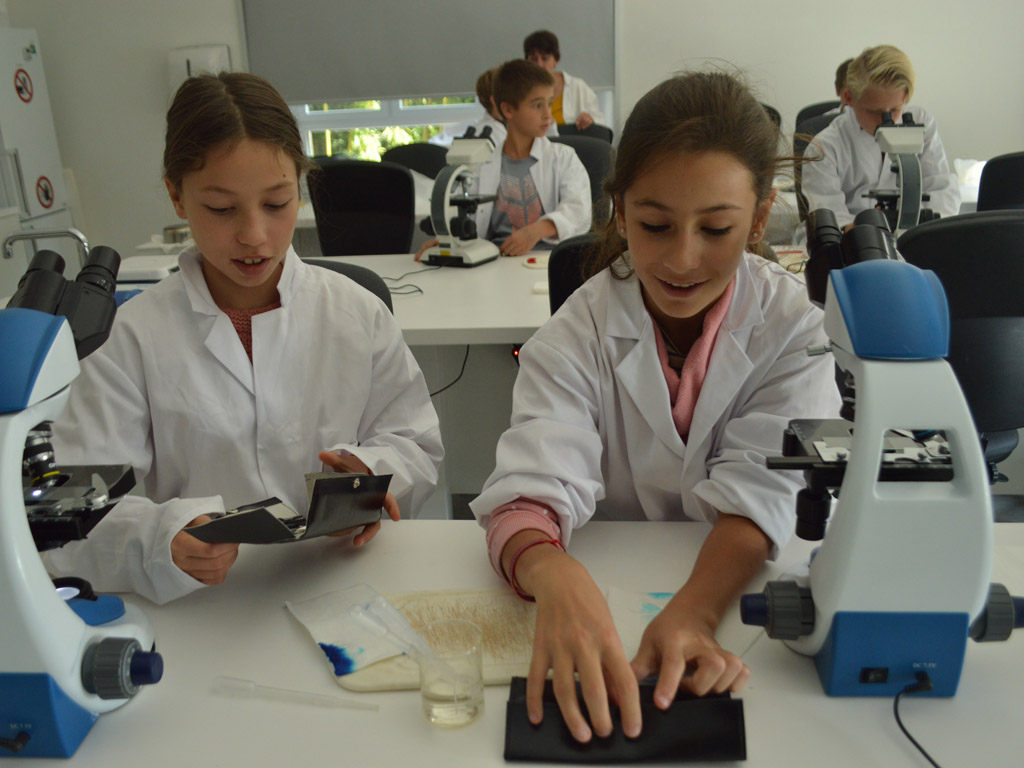
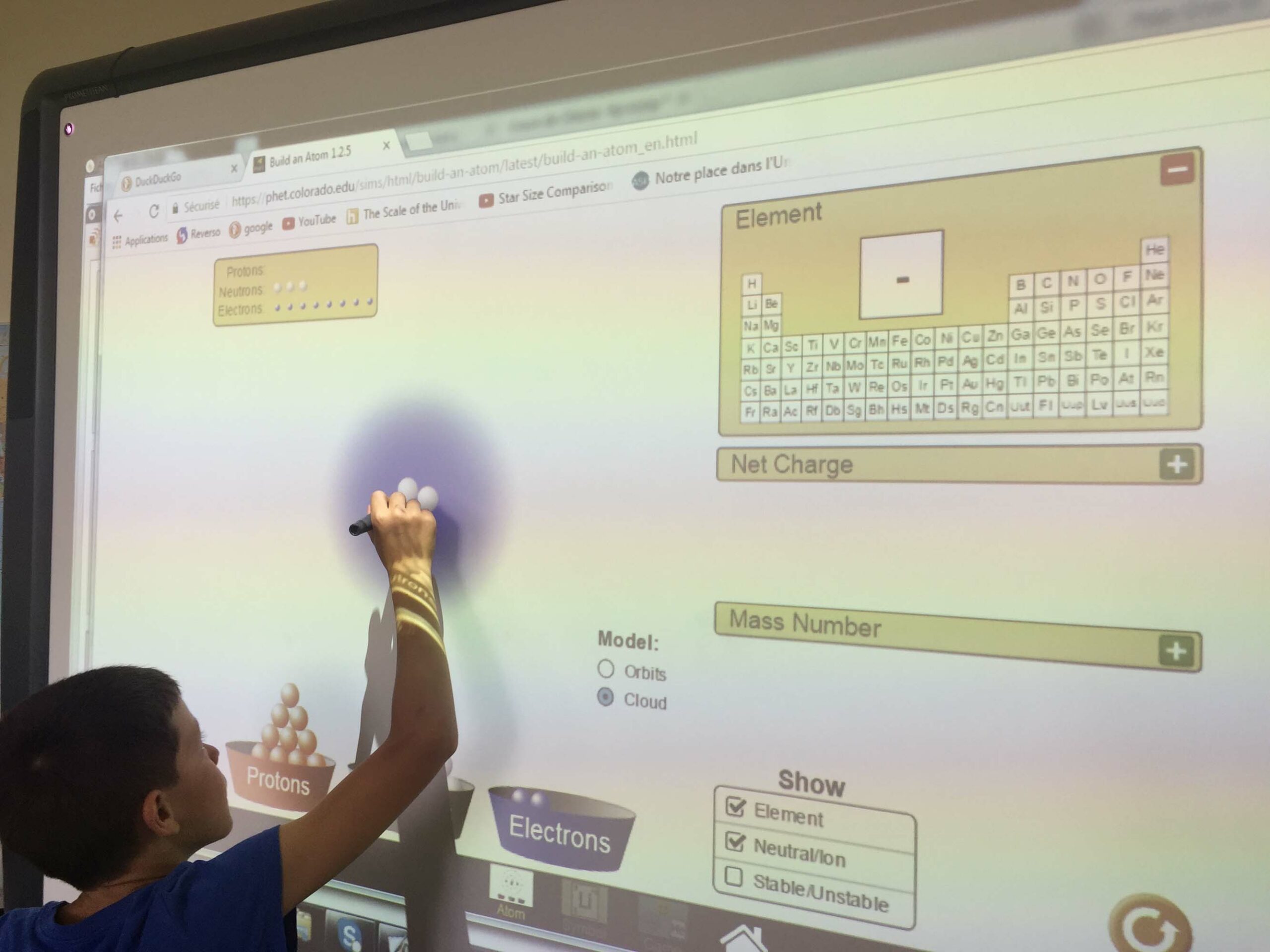
Chemistry and Geology
Secondary Chemistry begins with a review of the basics (states and structure of matter) and then introduces pupils to the history of Chemistry and atomic theory, chemical bonds, the study of molecules and their structures, chemical equations and stoichiometry, acid-base and redox reactions, organic chemistry and living molecules. In Year 8, a specific course on drugs and medicines enables students to see how useful this knowledge is.
In Year 7, Geology replaces Chemistry. The course starts with the formation of the universe, the galaxies and the planetary system, and then enables students to understand the creation of the Earth, the formation of the continents, plate tectonics and the natural phenomena that ensue – such as earthquakes and volcanic eruptions, the formation of rocks, and the identification of rocks and their composition.
Humanities
We have added humanities courses covering the four years of Secondary School.
In 6S, we delve into the history of Switzerland and its political formation. This is an opportunity to revisit our myths and understand how our political institutions work. The different ways in which decision-making processes are organised are studied in particular, with a special emphasis on direct democracy and the principle of subsidiarity.
In Year 7, an art history course prepares our pupils to understand the major works of art from Antiquity to now, both stylistically and iconographically. Visits to museums in Rome and Vienna provide an opportunity to put this knowledge into practice.
In 8S, an introduction to religions makes pupils aware of the importance of this phenomenon; the Old Testament and the New Testament are studied in depth, then a tour of the world’s religions enables the different belief systems to be compared.
In 9S politics returns to the menu, but this time by reading the great classics, from Toquevielle to Constant via Rousseau. What is a nation? How is a society formed? What is the relationship between the individual and the state? These questions will be crucial in the future of our students.
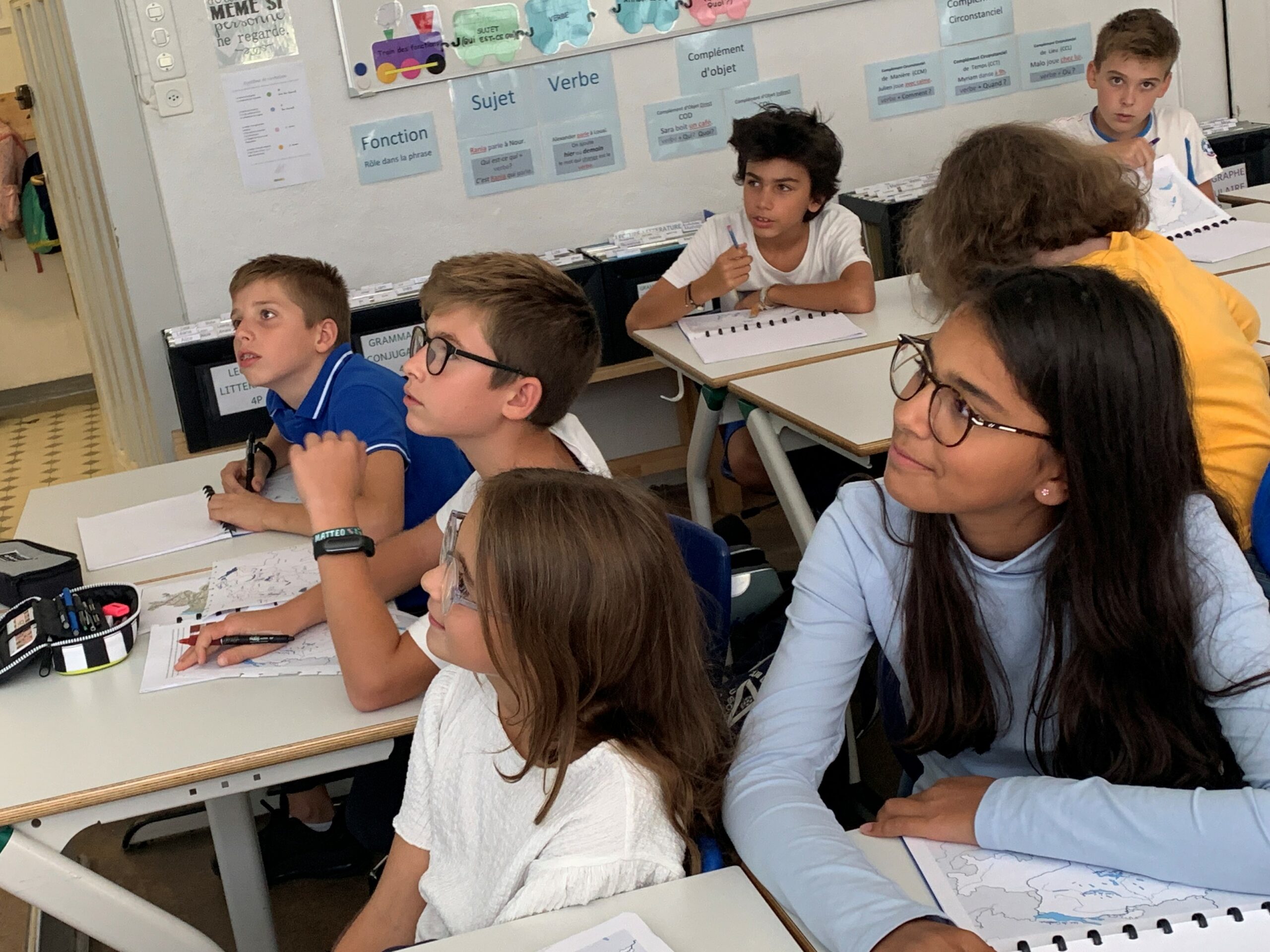
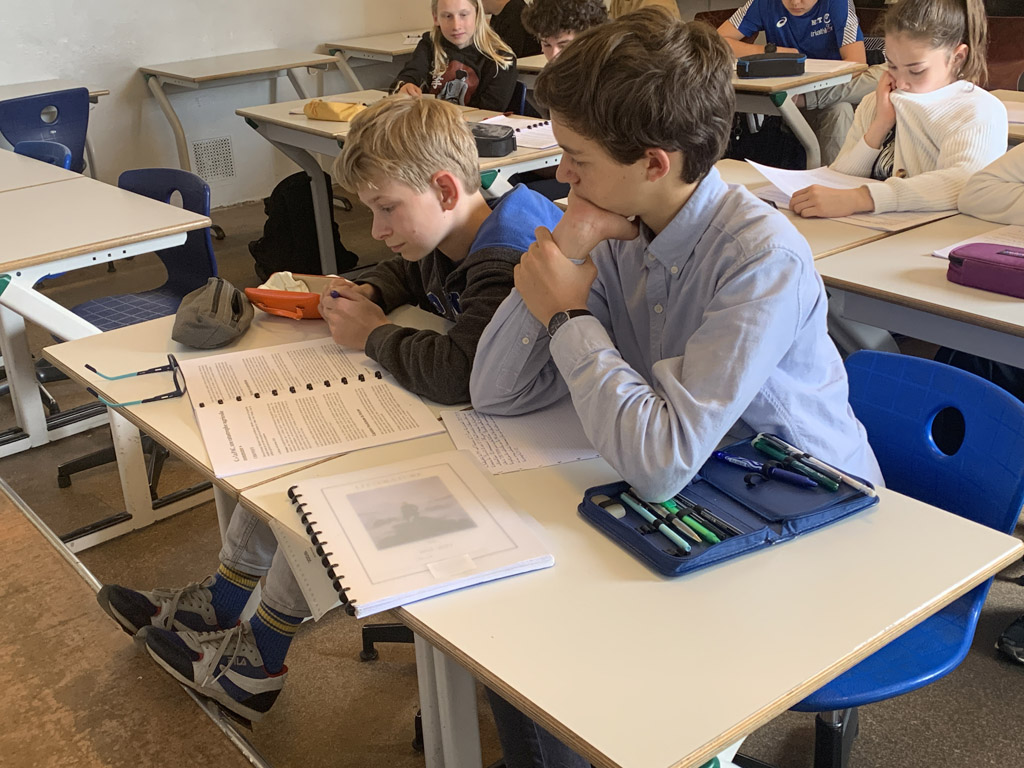
Economics and Law
Probably nothing has as much impact on the future lives of our students as questions of economics and law, and the interest they all take in these courses shows that they understand their value.
The first three years are devoted to economics: first micro-economics, where they learn how a business works, the circuits of the local economy, the market, competition, and how to draw up a budget. The second year is devoted to macroeconomics, with a focus on the consequences of state intervention in the economy through price controls, taxes or subsidies, the functioning of different types of economy, international trade and the current political situation. The third year is devoted to economic theories, from Malthus to the present day; finally, the final year covers law, including contract law, civil law, criminal law, the foundations of law and the problem of punishment (penology).
OS Latin (and Greek)
Some people still believe that Latin is a dead language or that it is boring to learn. Don’t give our students such ideas! Latin is a living language, the source of almost all French vocabulary and more than half of English vocabulary. We speak Latin every day without knowing it – but we understand it much better if we know it! And what an opportunity for Latinists to understand Italian and other Romance languages intuitively!
Our Latin method, developed by Hanz Ørberg, works largely intuitively and teaches Latin in Latin. Students and teachers alike appreciate its ease of use. Latin grammar, structured like German grammar, trains the mind in logic and reasoning at least as well as algebra, and is certainly more useful in everyday life for most people when it comes to understanding other languages.
Pupils who wish to continue with the Latin OS in 8S and 9S can do so; they will then have 2 hours of Latin and one hour of Maths-Physics. It is also possible to organise a year of Greek in 9S for those who wish to study it at Gymnasium – a wise choice for very good students who will then be able to take Greek instead of English as their 3rd language at Gymnasium.
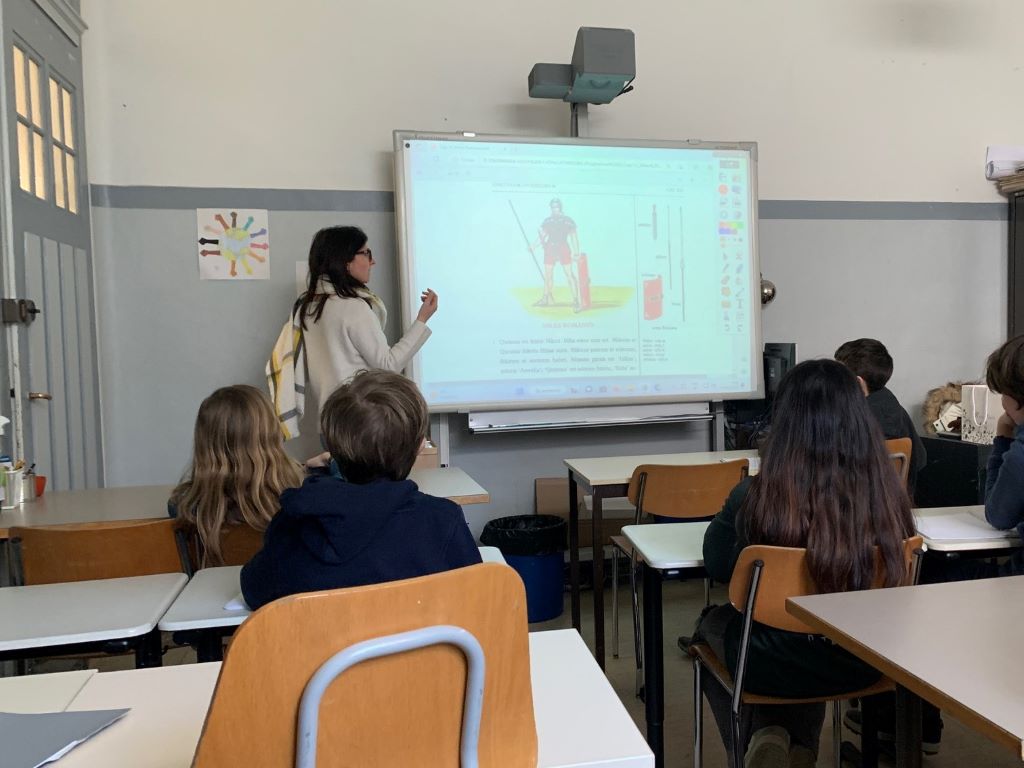
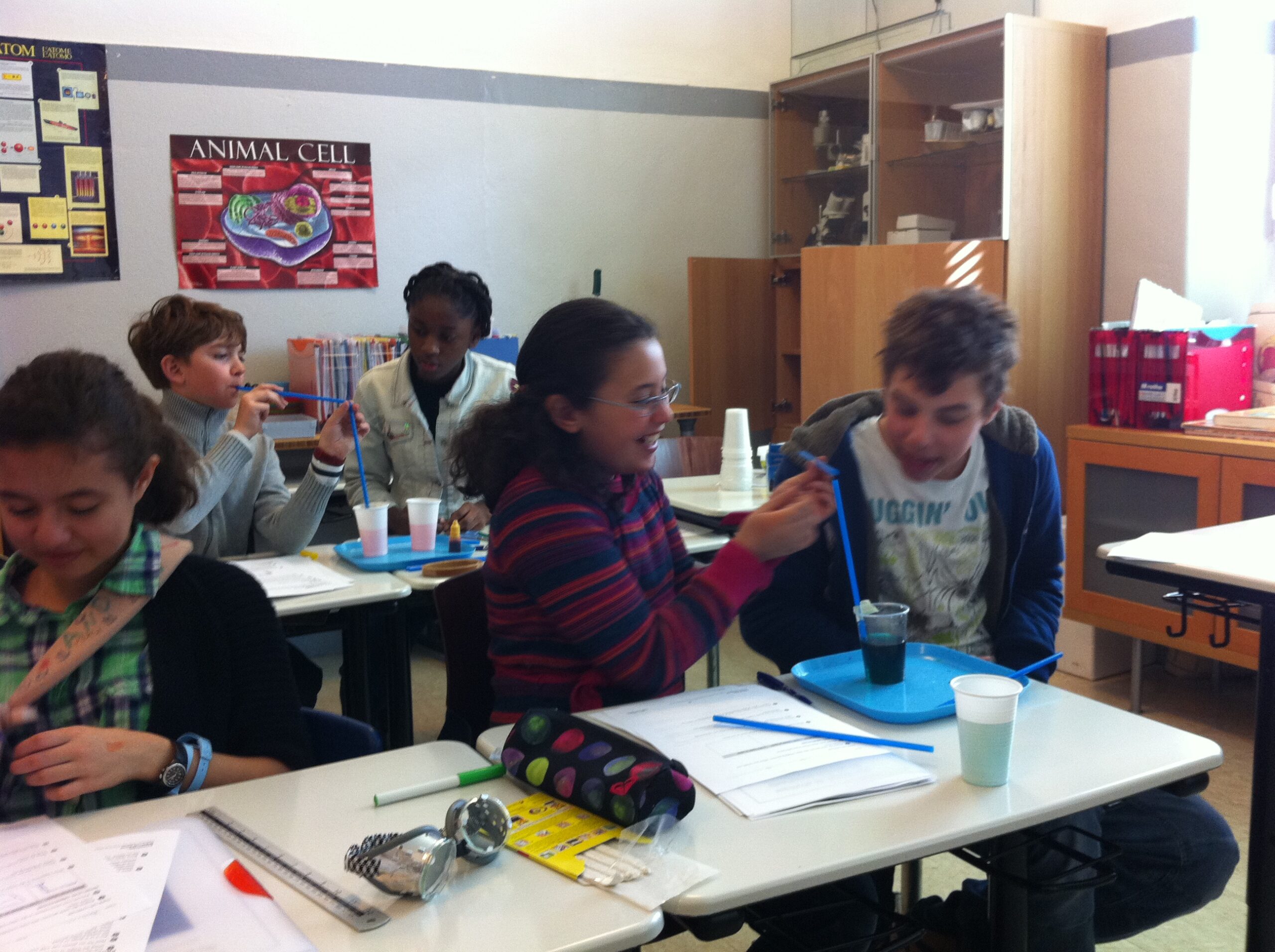
OS Maths-Physics
Two years of OS Maths-Physics follow the two years of OS Latin and this gives our students the best of both worlds, the humanities and the natural sciences. Our option follows the old model of the best students at the Gymnase Vaudois, when the most gifted were still allowed to do the Matu in two years and choose ‘Special Maths’, i.e. Maths/Physics & Latin/Greek at the same time. Those days are long gone…
OS Maths/Physics prepares students for the same option in the Gymnase or IB, and generally prepares them for the common Maths and Physics teaching in the Matu Programme. Our aim is to help our students succeed in their further studies, and a good level of maths and physics is an essential prerequisite.
History, Geography and Current Affairs
The history course in 6S starts in the classical way with prehistory and ends in 9S with contemporary times. The lesson is read at home with a questionnaire (flipped classroom); in class, the discussion focuses on more specific points, the pupils do presentations, etc. The course covers Swiss, European and world history, using authentic documents and a variety of sources.
Current Affairs includes Geography (the economic part being covered in the economics lesson and the physical geography being covered in geology). 6S begins with a major review of political geography, then students are invited to read or watch a variety of media and come to class with news items on a variety of themes. The course is organised around fundamental issues – such as energy – or current situations – the situation in China, the American elections or the war in Ukraine.
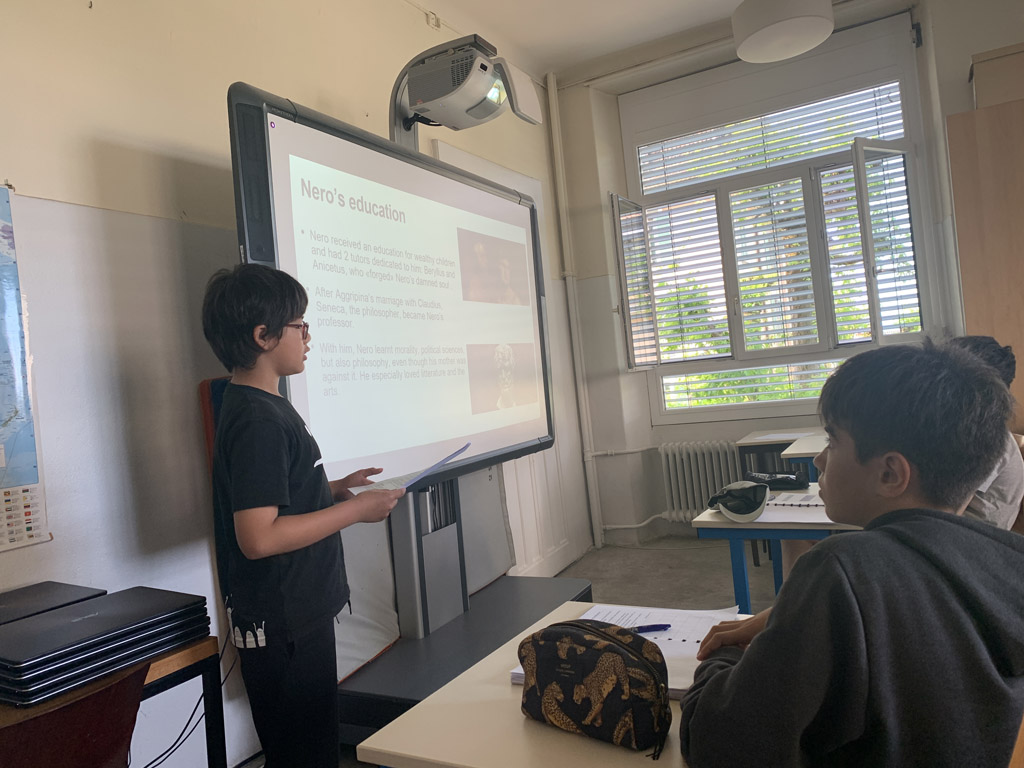
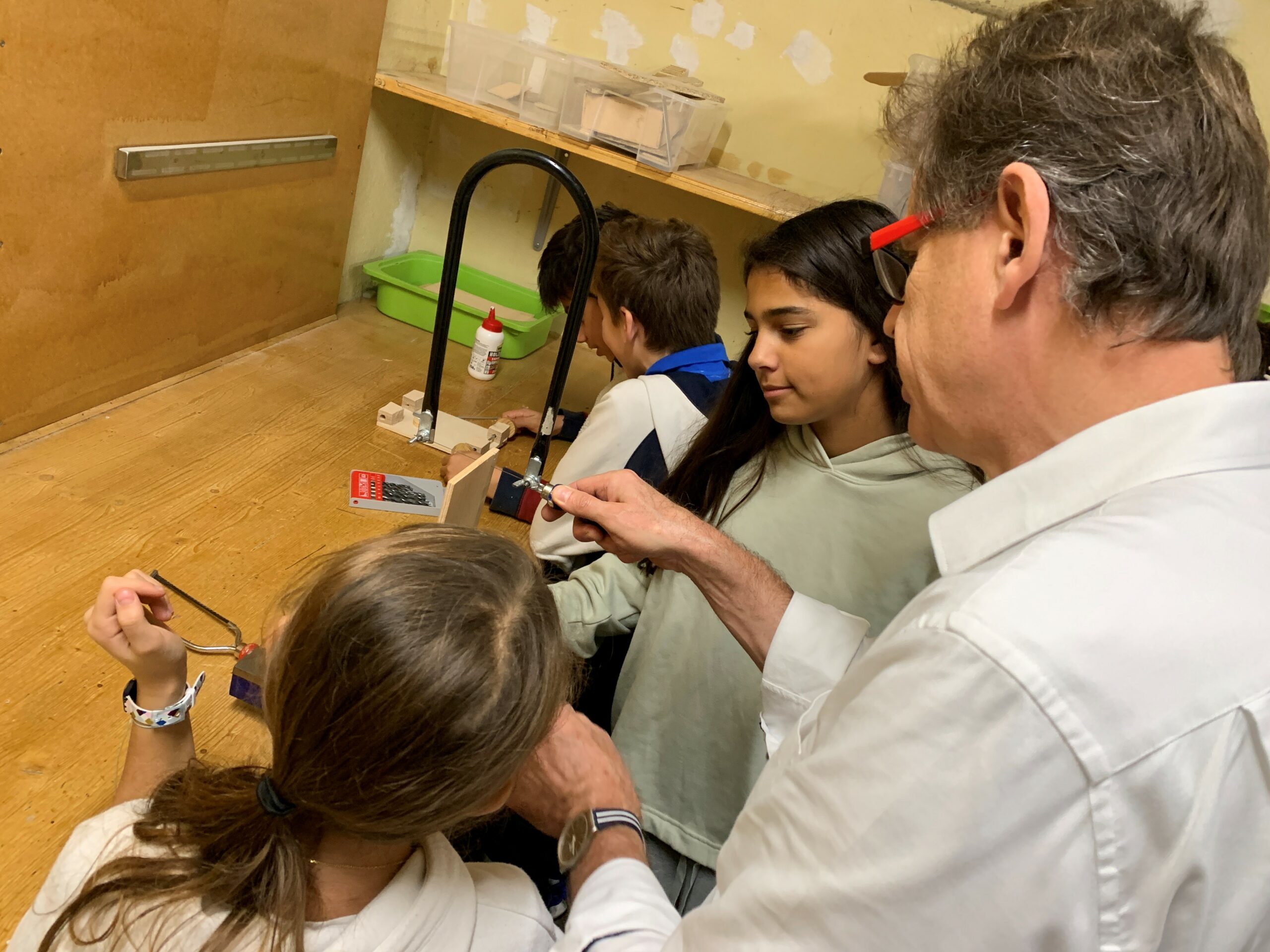
STEM
STEM stands for Science, Technology, Engineering and Mathematics. In short, engineering sciences combined with a healthy dose of invention, DIY and woodworking.
We’ve set up a fully equipped workshop, where the 6S and 7S students first learn how to measure, cut, saw, nail and screw without getting their fingers in a knot. Once they’ve got the basics down, they’re off to solve various challenges, or build interesting objects – like beehives (which are actually being used) or solar ovens (whose design still needs to be improved).
Art & Music
The art course introduces students to a wide range of techniques, which they work on until they achieve a satisfactory result. Pastel, gouache, decoupage, photography and animation are just some of the possibilities.
Each year, several art competitions allow those who wish to do so to develop more personal works; and painting and modelling classes are part of the after-school activities for all those who wish to do so.
The music course combines choir time with musical analysis, from baroque to pop and jazz. Pupils are thus able to weave links between the music they listen to and the many ancient and modern influences from which it comes.
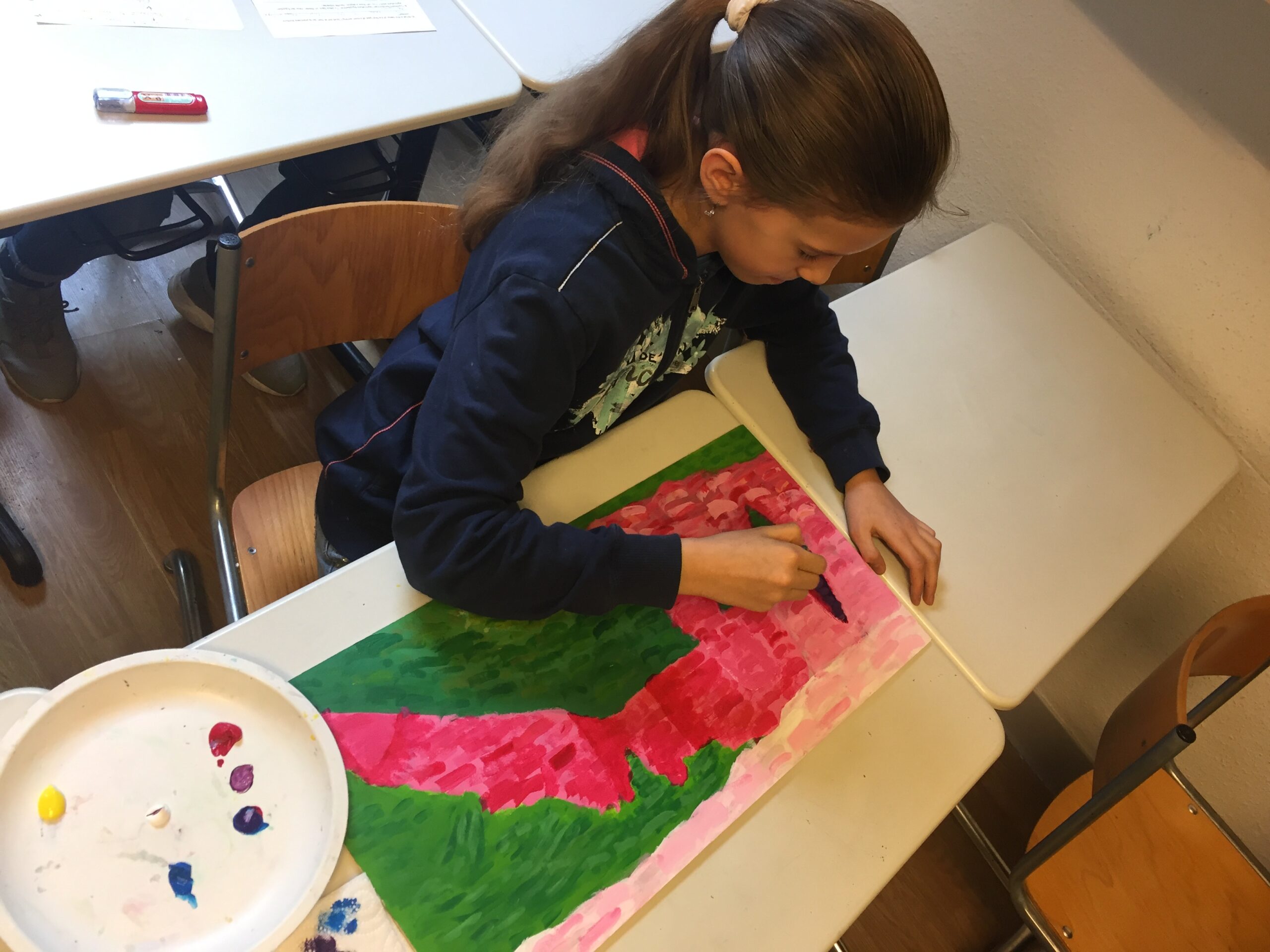
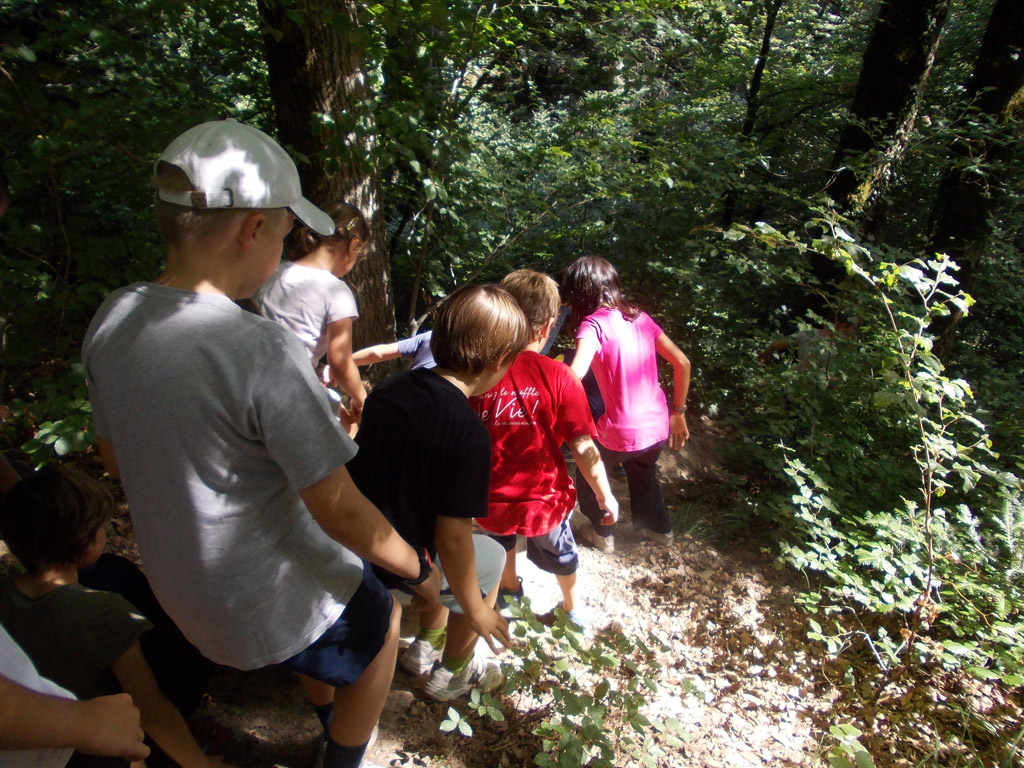
Sport
Mens sana in corpore sano – getting into the habit of regular sport, in a variety of environments and in all disciplines, is crucial, especially in adolescence, for a healthy future life.
We prefer outdoor sport, and the pupils are often out in the forest or by the lake doing athletics. They also go swimming at the pool, skating, climbing, and play various team sports on our sports field or on those in the town.
To ensure that everyone enjoys their sports, the pupils are grouped by ability rather than by class, so that some enthusiasts can pursue their top goals, while others prefer to take part in a cooler group.
Sports Games
We organise sports games twice a year, based on athletics or uni-hockey. Our teams are made up of students of all ages, and each has a captain who is chosen from among the final-year students (9S).
The captain is responsible not only for his or her morning team (students from Secondary School and older primary classes), but also for the afternoon team (young primary pupils). As a result, the team’s results are not known until the very end of the day, and a great sense of cohesion is established between the older students, who look after and coach their younger companions.
It’s also an opportunity for the students to assess their own skills and take part in a group competition. For the captains, it’s also a chance to take on new responsibilities, to learn to motivate their team and their mates, but also to support them and give them advice.
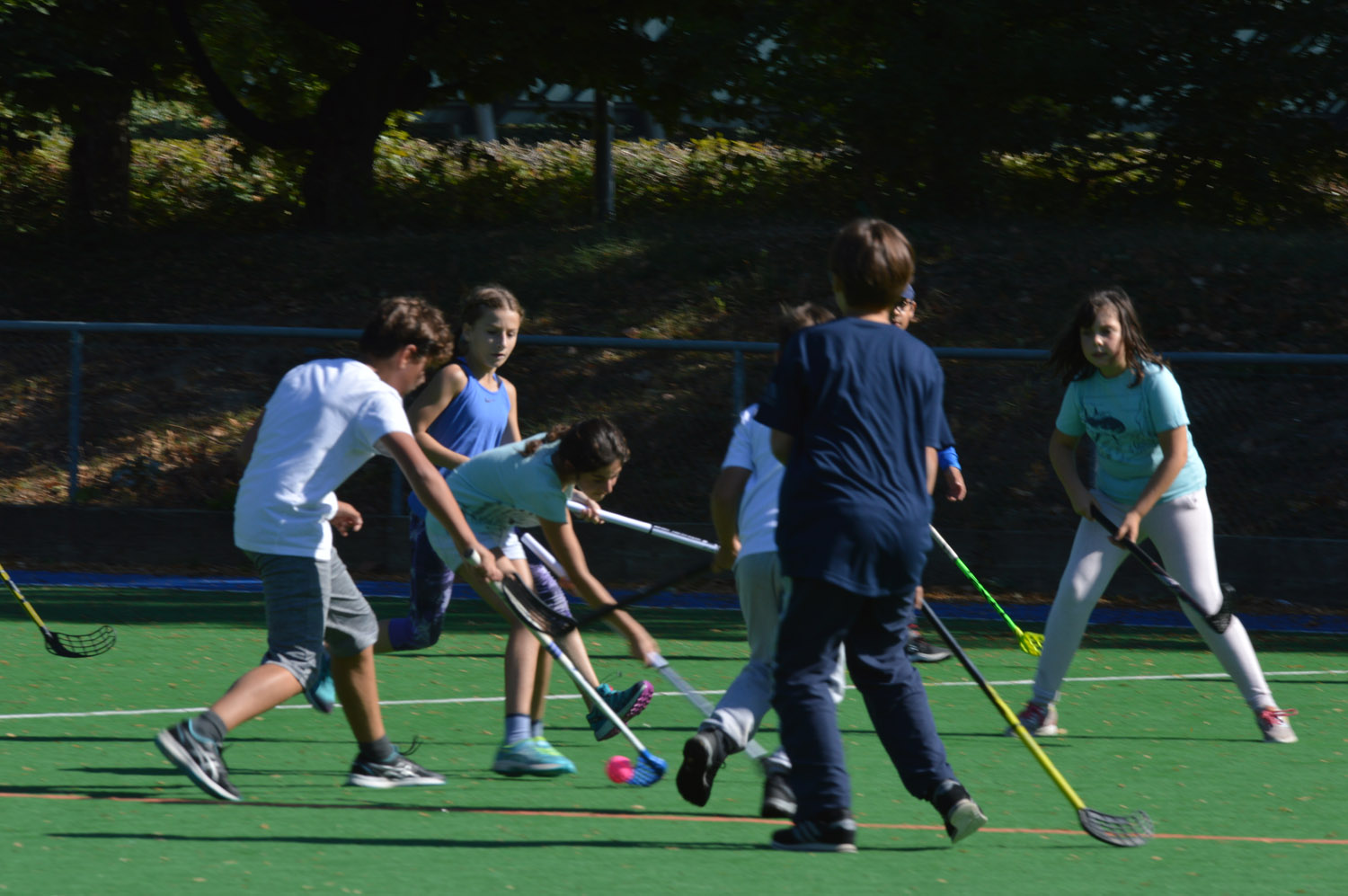
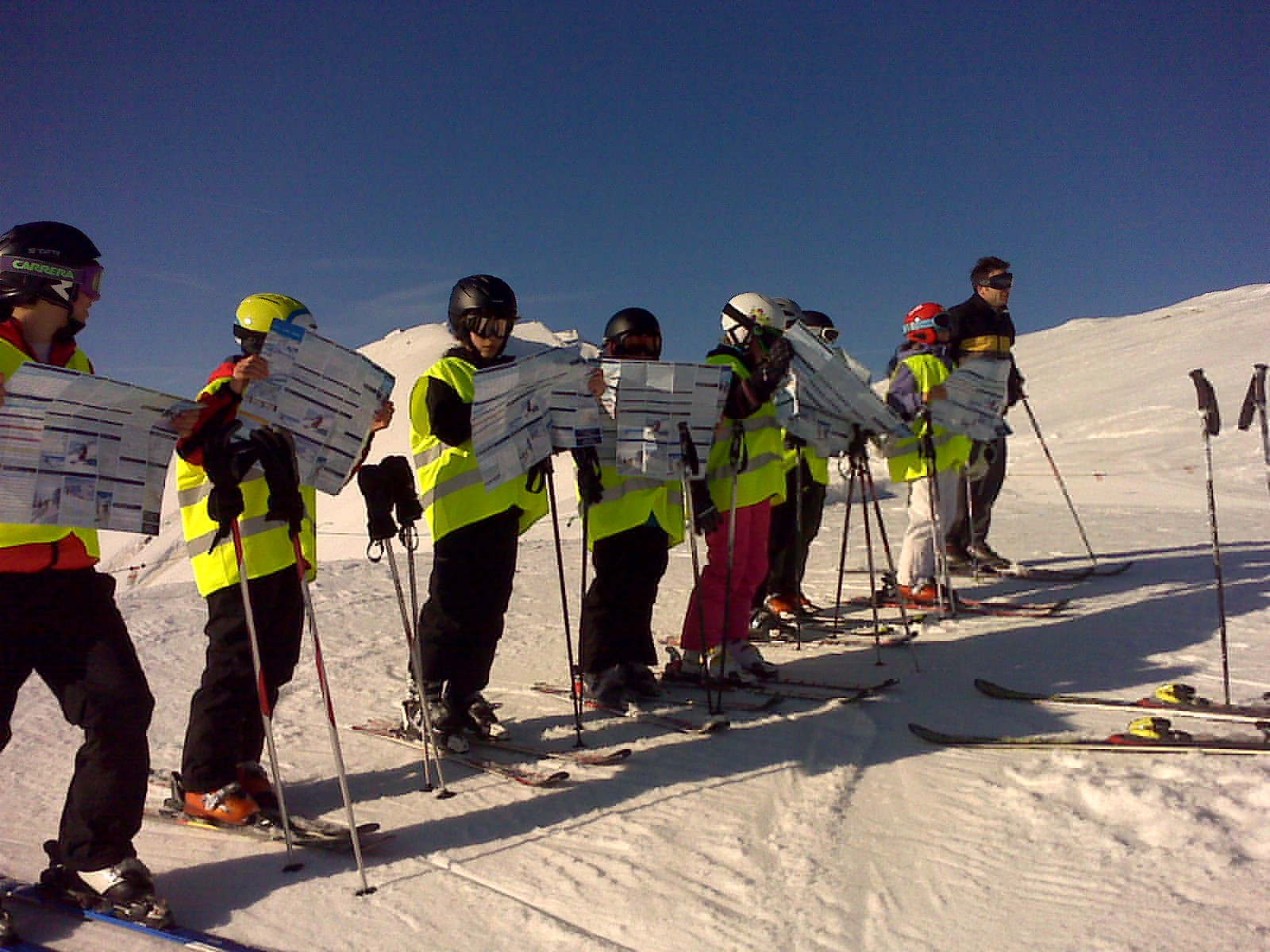
Ski camp
A real ski camp is a memorable affair. It’s obviously a chance to make some serious progress on skis – we organise our own groups and instructors to ensure that everyone has the chance to develop and improve their skills.
But it’s also about adventure and growth, taking responsibility and tackling problems, having a laugh with your mates, learning new card games, losing and finding your socks or mask, almost missing the bus, coming home exhausted after a day in the deep snow, having a good shower and slipping into the feathers, and, the icing on the cake, the inevitable and hilarious ‘disco’ on the last night!
Sailing camp
Living by the beautiful lake Léman is the perfect opportunity to learn to sail.
At the end of the year, a week is devoted to sailing and the lake, on all kinds of boats, at the Pully Sailing Club, which has been organising our camps with great skill for many years. Our pupils, who started out in Opti in primary school, continue to learn on larger boats, catamarans or dinghies; as crew or helmsmen, they take it in turns to learn how to gauge the breeze and position the sails.
Every year, several students decide to extend their experience with the Club de Pully.
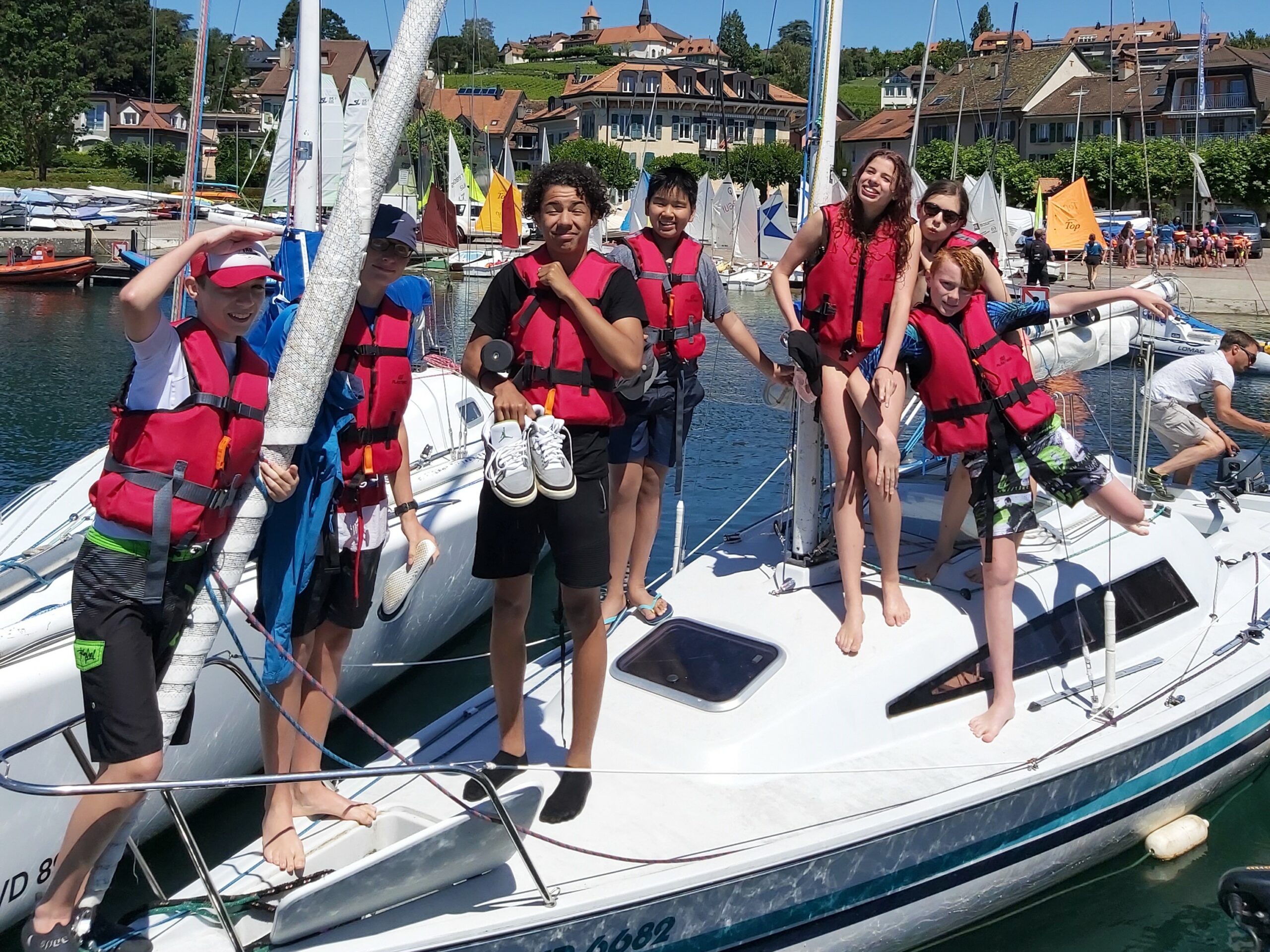
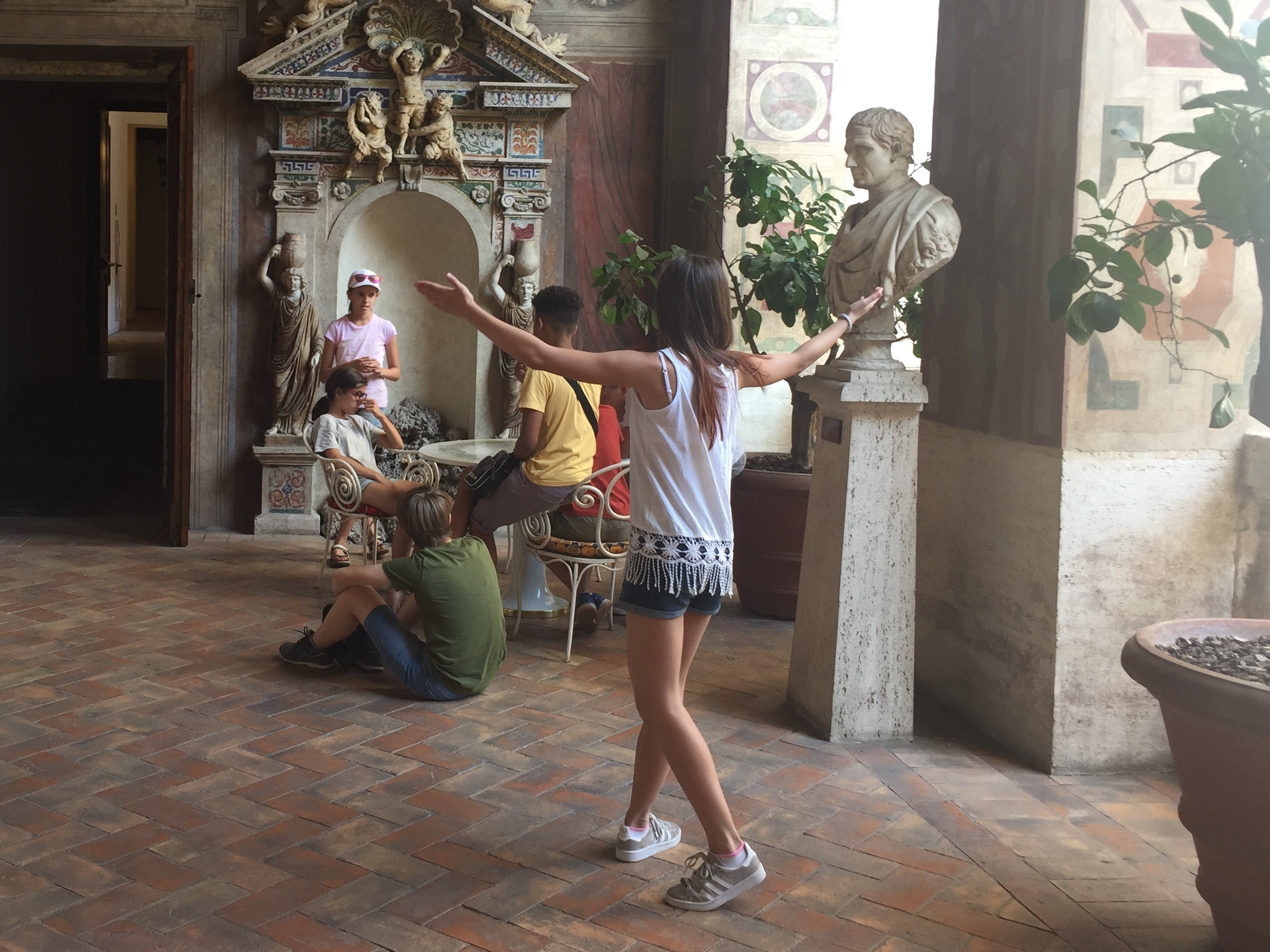
Study trips
Study trips are a formative experience for young people and become unforgettable memories for our students. We organise the visits, which focus mainly on art and culture, avoiding sites that are too touristy, according to the programmes studied.
The trips take place on a 2-year rotation: the 6S and 7S go to Rome in the odd-numbered years, where they take advantage of the ancient history and art history lessons they have received during the year to give presentations and visit museums. In Rome, we stay in a convent next to the Pantheon.
From 2024 onwards, the 8S and 9S will go to Vienna in even-numbered years. As well as visiting art museums and attending concerts, they will be able to practise their German and discover a city marked by the history of the 20th century.
After-school activities – it’s over here!
Secondary school pupils often take part in supervised homework; for those with more specific needs, assisted homework is more appropriate.
For other possible activities (private music lessons, sewing, painting, modelling, chess, etc.), click here!
